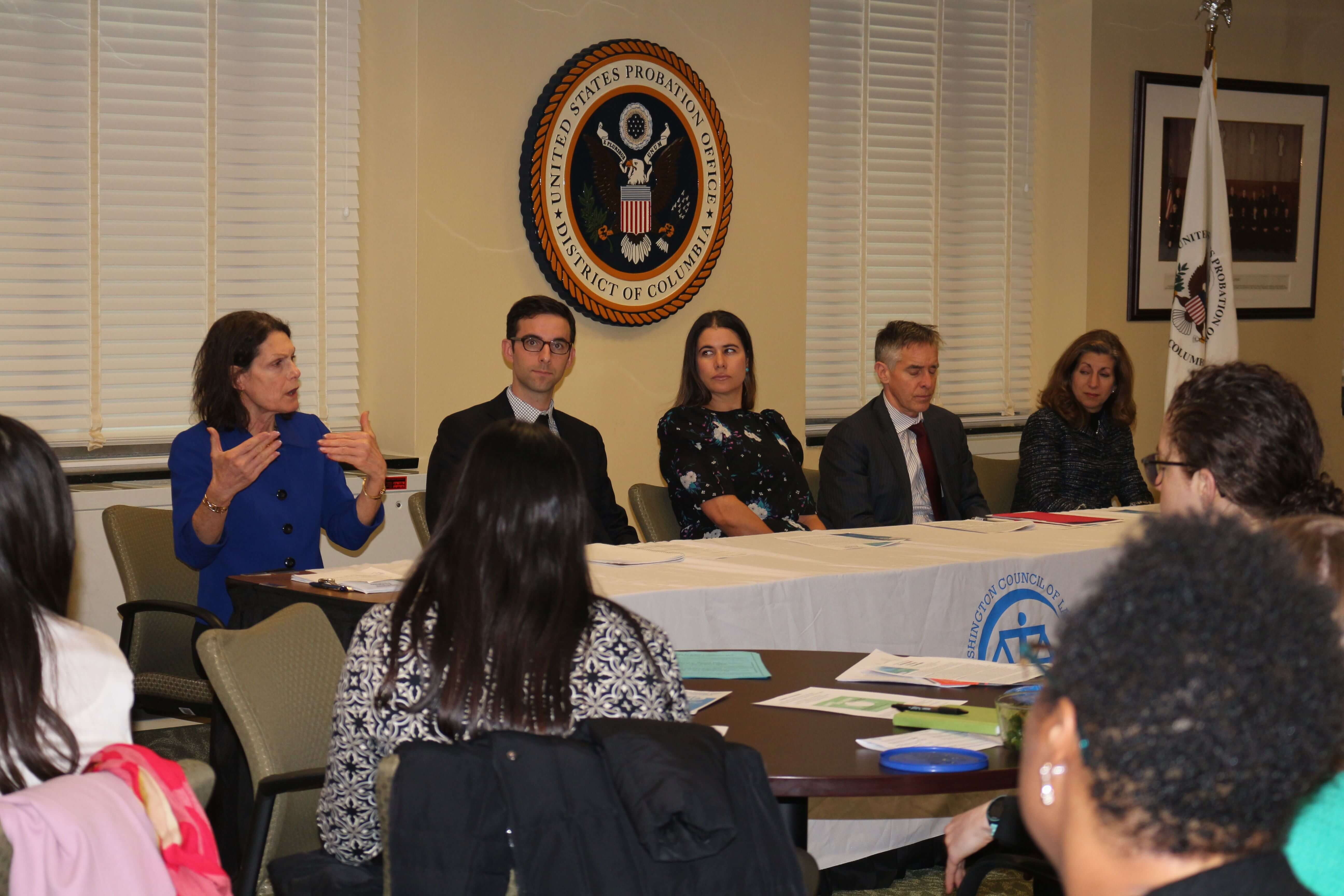
Government Pro Bono Roundtable 2019
Last week, we held our annual Government Pro Bono Roundtable. A panel of seasoned government lawyers discussed how and why they have made pro bono work a part of their legal careers.
We’ve summarized the questions posed to and answers provided by our panelists: Jonathan Jacobson, Nicholas Kazmerski, Laura Klein, and Catalina Martinez, and Liz Symonds. The main point is that pro bono work is fun and rewarding for government lawyers, too.
More detail below:
Q: Can I take a case in an area of law I don’t know very well?
If you’ve finished law school, you have the skills required to do pro bono work. Panelists added that a mentor or case counselor, within the legal services organizations that you’re volunteering for, can help you navigate an unfamiliar area of law.
Q: Will I have enough time to do pro bono work?
Yes! There are lots of ways to get involved no matter how much or little free time you have. You can take a short-term case (like helping someone get a civil protection order), or represent someone in a larger case that lasts a long time. You can also volunteer at walk-in clinics like the D.C. Bar Pro Bono Center’s Advice & Referral Clinic—which takes place once a month on Saturday and brings no additional commitment.
There are other things that will make pro bono work easier on your schedule. For long-term cases, you’ll be paired with co-counsel so that the workload is more manageable. And some agencies allow lawyers to take administrative leave for court appearances in pro bono cases.
Q: What resources are available to me?
Many government agencies already have pro bono programs with resources available to assist lawyers. In addition, probono.net has templates of commonly filed documents; most legal services organizations also have document banks, and translation services are available for free using a telephonic language service.
There are also resources for meeting with clients. For housing and family cases, the first meeting might be conducted at the client’s home, with co-counsel present. Other meetings can be held at the D.C. Bar offices (during business hours), in private meeting rooms at the D.C. Public Libraries in the private meeting rooms, or even in a private corner of a coffee shop.
Q: What are the rules?
D.C. Court of Appeals Rule 49 allows federal government lawyers who are not D.C. barred to perform pro bono work under the supervision of a D.C. Bar member. The federal government program can help to match lawyers with a lawyer admitted to practice in D.C., and the Court of Appeals recently updated this rule to make it even easier for non-members to practice.
Government lawyers must be aware of potential conflicts. There are procedures for running conflict checks before you decide to take a case. Panelists also advised checking with your agency if you have any questions about a possible conflict.
Finally, government lawyers must take pro bono cases in their individual capacity. And they can’t use their government position to influence case’s the outcome. Different agencies also have different rules about using government resources (such as government printers, phone numbers, email addresses) so lawyers should consult their agencies’ specific policies.
Q: Why should I do pro bono work?
Doing pro bono work gives a voice and a chance to someone who might otherwise not have one. As one panelist explained, sometimes just drafting a letter or making a quick phone call can mean that a client has a warm place to sleep at night. In other words, government lawyers can use pro bono work to do a whole lot of good in a modest amount of time.
If you would like more information about doing pro bono as a government attorney, contact Laura Klein, Department of Justice Pro Bono Program Manager at Laura.F.Klein@usdoj.gov.






